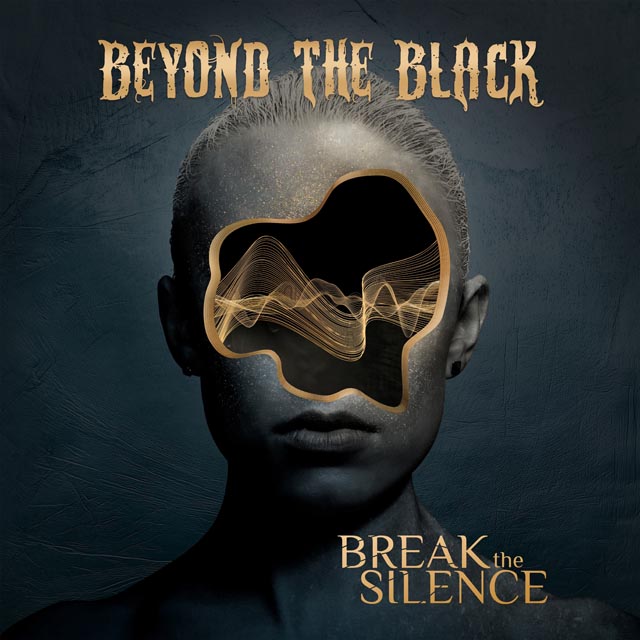 In addition to helping out with the No Label Needed contest and series, Darkest Hour guitarist Mike Schleibaum has been through a lot over the past 16 years since the band formed. Starting out on local labels, the band eventually went to Victory. They’ve since signed to E1, and are working on their first album for the label, due early next Year. Mike’s seen both sides of the coin on what path a band should take with their career. Here’s his take on it:
In addition to helping out with the No Label Needed contest and series, Darkest Hour guitarist Mike Schleibaum has been through a lot over the past 16 years since the band formed. Starting out on local labels, the band eventually went to Victory. They’ve since signed to E1, and are working on their first album for the label, due early next Year. Mike’s seen both sides of the coin on what path a band should take with their career. Here’s his take on it:
UNSIGNED VS. SIGNED: THE PROS & CONS 101
Here’s my two cents on the eons-old debate. I chose to focus on the benefits of both worlds; after all, it’s not about which one looks best on paper, it’s about what one works best for you.
DC Style with a little DIY on the side: The Unsigned Life
Control:
The number one benefit to life as an unsigned artist is control. As an artist that self-releases material and markets its own music you are in the unique position to write your own destiny. As you will see control is at the center of this debate, those that choose this path do so knowing full well the worth of this control.
Direct Accountability:
It’s knowing who does what and when they do it that gives the unsigned artist the ability to make sure things are handled the way they want, when they want.
Schedule Control:
Control and direct accountability both leave the unsigned artist in the position to have almost total schedule control (notice I said “almost”). Most bands regardless are usually slaves to some uncontrollable circumstances. But sitting in the driver’s seat allows you to at least have a clearer view of how the scheduling of your “band life” will work. This can be a great asset if you are looking to do your band more as a part time hobby than a full time gig. It can be a great way for people with families or other jobs to still be active musicians.
World Wide Payer:
Most labels will try to sign artists to exclusive worldwide deals. Yet there are few, if any, labels that are able to be as competitive worldwide as they are in their home countries. This can be very frustrating for the touring/working musician. The freedom to negotiate separate agreements in every territory of the world gives the unsigned artist the ability take advantage of any international opportunities that may arise while keeping free from whatever international limitations a record label may have.
Cash Flow:
As an unsigned artist, you have both the ability and opportunity to directly control, manage, and receive all the cash one might actually profit from off of your musical endeavor. This responsibility comes with a heavy weight, since most bands in this situation are also self-financed. Sure, you’re going to get all the profits, but that means YOU’RE going to have to front all the cash. Now don’t get me wrong, this can be done to your advantage, but its not going to be easy at all. Handling the finances of band life can be the most troublesome task of keeping your band alive. Record labels are rarely open about how they handle their finances and spending. Having total transparency regarding finances can be a great benefit in the large scheme of things.
Unsigned artists can still work with managers, booking agents, PR companies, travel agents, merchandising companies, touring companies, etc. They can exist almost fluidly along side signed artists. There have been plenty of examples of very commercially successful artists who live by the “go it on your own” creed, so make no mistake it is a viable route.
Record Company Pimp’n: The Signed Life
I have spent most of my touring and recording life as a musician signed to a record label. And while this journey began before the rise of the Internet, it was not free from the influence of that rise. Signed life is a constantly changing and evolving thing. Mainly because every record label, distributor, or music storeowner is trying to figure out how to stay alive amongst the ever-shrinking market for actual physical sales. We all know too well the cliché story of band that signs a record deal, gets famous, only to turn around and realize they’re broke and at war with their “evil” record company. But that story is a fantasy comprised of mainly half-truths. There are some very important benefits to life as a signed artist and it’s crucial that you weigh these against the freedom and control the unsigned life can bring.
Cross Marketing (the other side):
While being unsigned does give you the ability to build your own distinct name brand, it doesn’t give you the ability to attach your little or unknown name brand to that of a band who is already well respected and established. We have all seen the “For Fans Of…” stickers record labels plaster all over CDs these days but by being in ads, placed in stores, and using the collective power of double marketing, record labels really can build the name brand of an artist (in fact this may be one of the few things a that a label can do well).
Networking and tour ties:
Now I did mention that unsigned artists work with booking agents, but most major tours or touring packages are all tied up with label business. It’s mainly because labels spend marking dollars. You can’t overlook the networking benefits of having someone else’s business invested in your band. While a label may not be the ONLY crucial variable you need to land those tours, it may be one of the most important.
Back Catalog:
I think one of the most overlooked benefits to life, as a signed artist is the incorporation of your work into a back catalog. Many of you may have not heard the amazing metal/hardcore/noise pioneers Deadguy (Victory Records), but its ok that you missed them when they were around because thankfully the records, CDs, and digital downloads are still available from Victory. Since they are still in business, you can still find and purchase these records even though the band is dead and long gone. Being part of a label’s back catalog gives people a sense of history and it also ensures that your music will live on, quite possibly even after the band is dead.
Merchandise avenues (double sword):
I touched earlier on the benefit of control that unsigned life brings. Nowhere is that control more challenged then the issue of band merchandisng. Sure, you may get 100 percent of your T-shirt, baseball hat, and waffle iron sales every time you rock a concert, but getting those items in stores isn’t easy. Working with a label ensures that at least your products get a fighting chance. It’s important to note here that:
A. A manager or merchandising company could also fill this role.
B. Some record labels actually could care less about merchandising (although many are starting to try for a cut of that slice too).
The Physical Reality:
There are few if any unsigned scenarios that will allow you to compete with a record company’s ability to get physical product in stores. That’s right – you want your CD’s on the end cap at Best Buy, you want your CD’s in Target and Walmart, you want your CD’s in whatever record stores are left all over the world. This is where labels excel, because after all, this is and has always been their first income stream). I read somewhere that in 2009, 98,000 new albums were released in the USA. That’s a lot of competition for the little or no retail space left in the few stores that sell physical product, being signed to an actual label can give you a distinct advantage here.
Which path to chose? There are so many different angles but in the end I think it comes down to defining goals and deciding which path will get you and your band to those goals. Even if that goal is to not give a fuck, rock hard, and enjoy the ride!












